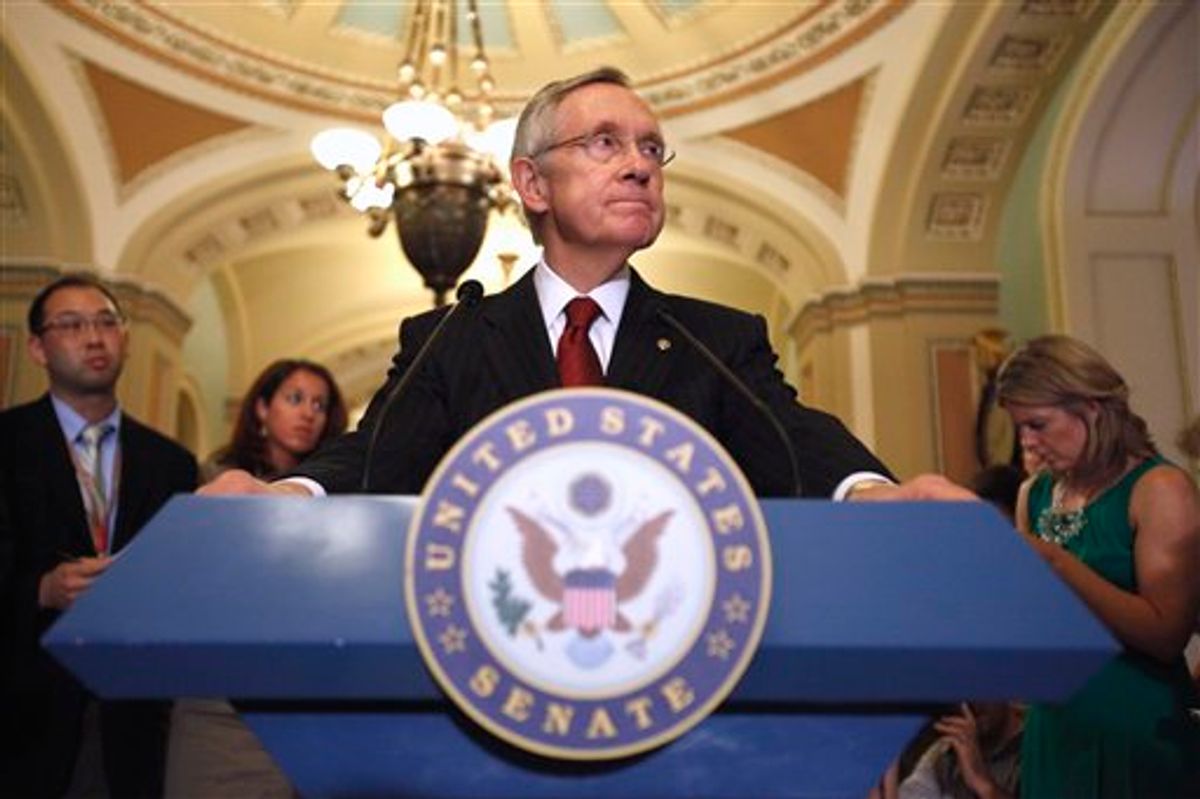This article originally appeared on New Deal 2.0.
The debt deal is bad economics, dishonest government, and surrender to blackmail. The alternative is not default, but government under the Constitution.
On the economics: by slowly choking off public services, public investment and regulation, the deal sets the economy on a path to strangulation. Every dollar cut from the budget, now or later, is a dollar less of private income. Less private income means less consumption, less private business investment, fewer jobs. Tax revenues will fall, and the deficits and debt will in the end not be reduced. The so-called “cloud of debt” will not lift. Contrary to the foolish claim made by the White House today, there is no magic by which “lifting a cloud of uncertainty” produces growth. There is no confidence fairy.
On dishonesty: the proposed cuts would reduce discretionary public spending as a share of GDP to what it was before the government had any major role in transportation, housing, education, safety, health, medical research or environmental protection. To where it was before the NIH or the CDC, before HUD, before the EPA, before OSHA, before the Department of Education. This is a false promise: those cuts cannot and will not be found. To promise them is to play to the gallery of the ignorant. To pretend that to make them would be good policy is to repudiate the entire past half-century. To make them would bring on a disaster, in many small and large ways, as the physical structures and legal and institutional protections built up over decades crumbled and fell apart.
On blackmail: This deal validates the making of real policy under the appearance of extreme threats. That process will not end here. And while Social Security, Medicare and Medicaid escaped in the first round, they are set up to fall in the second. The deal creates a new junta to force those cuts before the end of this year. The process is repellent, cruel, undemocratic, and designed to leave blood on the ground but not on anyone’s hands.
And the alternative? Is it economic disaster? No.
The alternative is not default. No crisis need ensue. The Constitution forbids default — not only on debt but also on pensions and on every public obligation of the United States. The Constitution is not a last resort; the 14th amendment is not obscure. It is the fundamental law, written in plain English. Debts, pensions and other obligations must be paid.
The true alternative is that the President will have to assert the authority he has so far ducked: his duty as President to defend the Constitution. He has that duty. He has that authority. He has the legal means to exercise that authority. If pushed to the last resort, he will have to do what the Constitution demands, and what he should have done from the beginning.
If the President cannot find the Constitution and the laws, then let the Democrats in the Senate show him where they are.
James K. Galbraith is the author of ‘The Predator State: How Conservatives Abandoned the Free Market and Why Liberals Should Too’. He teaches at The University of Texas at Austin.



Shares